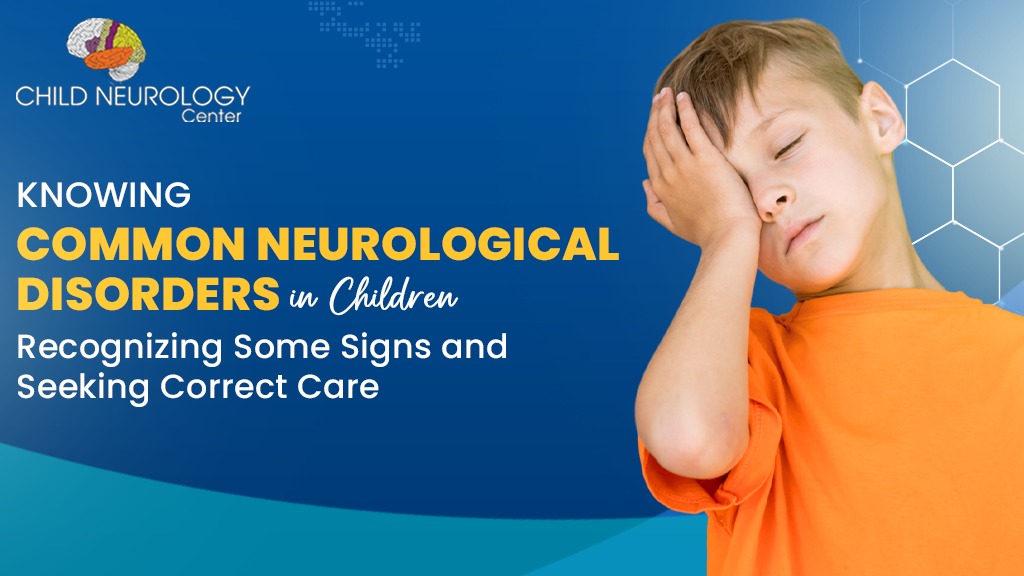
Some major achievements of this precious life are priceless, such as the feeling of becoming a parent. But sometimes some parents are made aware of some neurological disorders in their children which could affect the children’s lives and their parents hand in hand. Neurological disorders in infants are very complicated and could present several challenges to the parents, caregivers and healthcare workers trying to treat the medical condition. What really matters in these neurological disorders is early diagnosis and timely implementation of preventive for the successful treatment of these medical conditions which are unique to every patient. In this blog, we will understand the different types of neurological disorders that can pose a significant threat to children, discuss some of the features by which recognising these medical conditions becomes easy and highlight the significance of having an appointment with a reputed and experienced pediatric neurologist like Dr. Rakesh Jain in Child Neurology centre in NCR.
Better Understanding Neurological Disorders in Children:
1. Cerebral Palsy (CP):
Cerebral palsy is also known as CP which is a collection of neurological disorders which results in abnormal muscle control and motor coordination or unhealthy mind-to-body coordination. It mostly results and is observed from impaired brain growth or severe injury to the head when a child‘s brain begins to develop as well as unfold. Regular muscle tightness, lack of proper coordination, and difficulty in attaining naturally developmental milestones, such as proper posture sitting or walking, are some of the symptoms of CP patients.
2. Epilepsy:
Epilepsy is one of the most common neurological disorders, generally caused by the repetition of abnormal electrical impulses in the brain, which then results in recurrent seizures. Some infants with epilepsy could experience seizures in different forms such as staring spells, repeated movements or loss of consciousness in many cases. The first step in ensuring the right treatment for young children with epilepsy is diagnosing accurately and instituting the most appropriate treatment and determining the root cause of epilepsy.
3. Neurodevelopmental Disorders:
It is possible that neurodevelopmental disorders such as autism spectrum disorder (ASD) and attention deficit hyperactivity disorder (ADHD) can show their symptoms in early childhood. These children are challenged in some ways which include social interaction, general communication, and normal behaviour. Parents can sometimes feel helpless and notice symptoms like delays in speech development, observed repetitive behaviour patterns, or several concentration issues.
4. Genetic Neurological Disorders:
Some neurological disorders among infants are triggered by unusual genetic mutations or abnormalities. Examples of such medical conditions include Down syndrome, Rett syndrome, and fragile X syndrome which can play a role in unhealthy mental and physical development and ultimately result in intellectual and physical disabilities. Genetic testing might be required for the perfect diagnosis of these disorders with precise accuracy for the best available treatments.
Recognising Some Common Signs and Symptoms:
1. Motor Delays: Some infants with neurological disorders might show motor development delays, like facing some difficulty with constantly lifting the head, balancing the body or even sitting up without support normally.
2. Abnormal Movements: Seizures, tremors or some involuntary movements are the most common symptoms of neurological disorders in children and adults. The type of seizures may differ by intensity and length depending on the type of medical condition of a neurological patient.
3. Altered Behaviour: There are also behavioural changes which can be easily observed such as increased irritation, regular sleeping disorders, or unhealthy eating problems, which may be a sign of neurological disorders.
4. Developmental Regression: The phenomenon of regression in developmental milestones, such as loss of previously acquired skills or loss of effective communication, might point to neurodevelopmental regression and needs to be evaluated as soon as possible by healthcare experts.
Seeking Prompt Medical Care:
1. Consultation with a Pediatric Neurologist:
If parents suspect their baby may be challenged with a neurological disorder, they should seek evaluation by an expert pediatric neurologist. A comprehensive neurological examination and evaluation of diagnostic tests may be required for verification of the medical condition to come up with a proper treatment plan as a permanent solution.
2. Early Intervention Services:
If these medical conditions are treated early in an infant’s life it could prove to be life-changing and usually provide a ray of hope by utilizing specialized therapy, and other services that are meant to support the child and their adorable family. These medical interventions include physical therapy, occupational therapy, speech therapy, and much more.
3. A Healthy Collaborative Care Approach:
Comprehensive and coordinated care for newborns with neurological disorders must be delivered with effective treatment solutions which are crafted through collaborative practices that include pediatric neurologists, developmental pediatricians, geneticists, and other reputed healthcare professionals.
4. Family Support and Education:
Parents of children with neurological disorders can be helped by an introduction to support groups, information resources, and training from the best health providers. A better knowledge of their child’s medical condition and the available treatment options can assist parents in meeting every need of their child with more effectiveness.
Conclusion:
Children with neurological disorders and their parents face unique challenges, but with the early identification of symptoms as well as prompt medical attention, these special children can get the support and treatment that they need in order to develop a high possibility for a healthy and independent life. Knowing about the best healthcare facilities in this field like the Child Neurology Center led by Dr. Rakesh Jain and his team of professionals is committed and passionate to offer young children with neurological problems the best treatment available today. Parents should remember that the treatment of their children should be focused on the goal of maximizing their child’s better quality of life.

